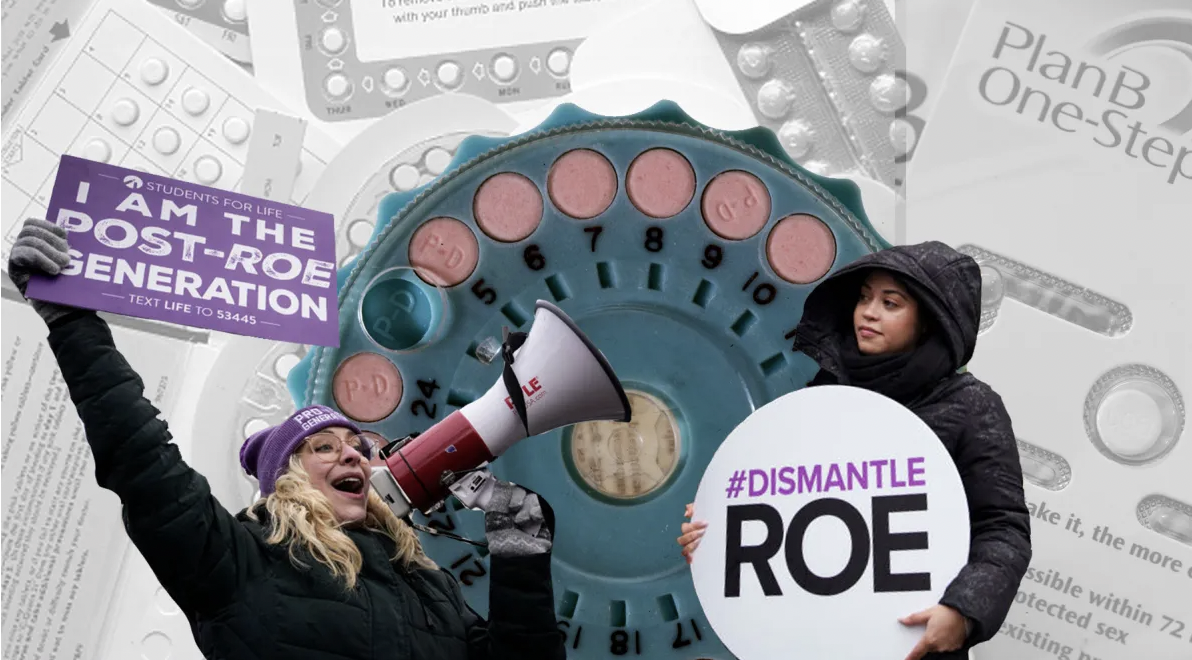UC Berkeley Investigation Reveals Birth Control Disinformation Campaign

A collaboration between Reveal from The Center for Investigative Reporting, Mother Jones, the UC Berkeley Human Rights Center, and Berkeley Journalism’s Investigative Reporting Program have published a two-part investigation showing a disturbing landscape of birth control disinformation that actively targets women searching for functional contraception options in the United States. Part One was published as a longform article with Mother Jones: Inside Anti-Abortion Groups’ Campaign to Sell Women on Unreliable Birth Control “Alternatives.”(link is external) Part Two was broadcast as an hour-long podcast with Reveal: The Long Campaign to Turn Birth Control Into the New Abortion(link is external)
The Human Rights Center (HRC) and Berkeley Journalism’s Investigative Reporting Program (IRP) supported this investigation as part of a collaborative graduate-level reporting class(link is external), co-led by Alexa Koenig, Co-Faculty Director and Executive Director of HRC; and David Barstow, the Reva and David Logan Distinguished Chair in Investigative Journalism at Berkeley Journalism. Their students combed through the social media accounts and personal websites of anti-abortion organizations and influencers and found content denouncing hormonal and other proven forms of birth control, while promoting misinformation about less effective methods. The interdisciplinary course included Berkeley Law students, who examined dozens of rulings and draft legislation from across the country in search of legal arguments aimed at undermining birth control.
“This has definitely been one of the most impactful and meaningful projects I have worked on during my law school experience, particularly after the Dobbs decision overturning the constitutional right to abortion,” said Berkeley Law student Emma McPhee. “As our research shows, contraceptive access and the legal foundations that guarantee the right to contraception are also at risk of being severely limited due to the concerted efforts by many of the same groups who succeeded in overturning Roe.”
Journalism students were tasked with combing through thousands of TikTok videos where young Gen Z influencers touted medical misinformation on birth control, claiming exaggerated side effects related to weight gain and hair loss, and even alleging that taking the pill was equal to having an abortion. The students used Maltego, a powerful network-analysis software, to establish links between these TikTok influencers and established anti-abortion players in the United States.
"We used Maltego to conduct a visual network analysis on institutions and individuals during the investigation,” said Zhe Wu, a Berkeley Journalism student. “While mapping key players in the anti-abortion movement, we discovered new threads and leads that ultimately strengthened the investigation."
HRC’s Supervising Reporter Gisela Pérez de Acha and the center’s Investigations Lab Director Stephanie Croft will offer a public webinar on October 27 walking through their use of Maltego for this investigation.
“This collaboration is a true testament to the power of open-source investigative techniques when coupled with investigative reporting, legal analysis and storytelling,” said Pérez de Acha, who is also an alum of HRC and IRP. Pérez de Acha led the project along with Nina Martin, an editor with Reveal, and Alexa Koenig of the HRC. The IRP’s David Barstow offered additional editorial guidance. HRC Research Manager Brian Nguyen supported the investigation, and Berkeley students Eleonora Bianchi, Emma MacPhee, Elizabeth Moss, Grace Oldham, Eliza Partika, Leah Roemer, Anabel Sosa and Zhe Wu contributed reporting.
The Human Rights Center at UC Berkeley's School of Law is a research center that applies advanced science, law and technology to the pursuit of justice and accountability. The Human Rights Investigations Lab trains students to conduct hands-on investigations related to human rights violations around the world. Its students work with diverse partners to find and analyze social media content and other digital evidence to uncover violations of human rights, atrocities and potential war crimes. The work with Mother Jones and Reveal is part of an ongoing collaboration with the Investigative Reporting Program at Berkeley Journalism.
